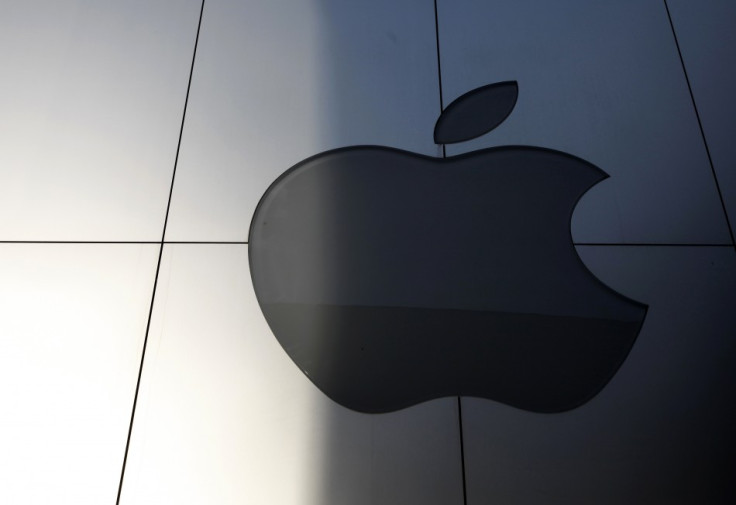Irish Government 'not to Blame' for Apple's Tax Dodge [VIDEO]
The Irish government is not to blame for a "complex web" of apparent US tax avoidance by Apple, the deputy prime minister Eamon Gilmore has said, hours before the iPhone-maker faces a US Senate committee.

Gilmore told national broadcaster RTE ahead of an EU meeting in Brussels: "They are not issues that arise from the Irish taxation system. They are issues that arise from the taxation systems in other jurisdictions and that is an issue that has to be addressed first of all in those jurisdictions."
Apple looked for "the Holy Grail of tax avoidance" by holding tens of billions of dollars in offshore bank accounts, according to a US Senate committee investigating the iPhone-maker's financial arrangements.
The Californian company is accused of using a "complex web of offshore entities" to become one of "America's largest tax avoiders" by the Senate committee, despite also claiming to be one of the largest taxpayers in the US.
Apple denies the charges and its CEO Tim Cook will appear in front of the Senate Permanent Subcommittee on Investigations in Washington on Tuesday to present his company's side of the argument. In a prepared testimony the company said it did not use "tax gimmicks" and has not done anything illegal. The company has cash reserves of $145bn (£95bn) and the committee says $102bn of this is held offshore, protected from the high US corporate tax rate of 35%.
The company claims to be one of the highest US taxpayers, having paid $6bn in federal corporate income tax for the 2012 financial year, and expects to pay over $7bn this year.
Subsidiaries
Apple said: "In accordance with US law, Apple pays US corporate income taxes on the profits earned from its sales in the US and on the investment income of its Controlled Foreign Corporations, including investment earnings of its Irish subsidiary, Apple Operations International."
Apple's complex financial arrangements means it has three subsidiaries in Ireland, where the corporate tax rate is just 11%, but these subsidiaries do not appear to be tax residents of any nation.
Carl Levin, chairman of the Senate Permanent Subcommittee on Investigations, said Apple "wasn't satisfied with shifting its profits to a low-tax offshore tax haven. Apple sought the Holy Grail of tax avoidance.
"It has created offshore entities holding tens of billions of dollars, while claiming to be tax resident nowhere. We intend to highlight that gimmick and other Apple offshore tax avoidance tactics so that American working families who pay their share of taxes understand how offshore tax loopholes raise their tax burden, add to the federal deficit and ought to be closed."
Revolving loans
In its 17-page statement, Apple said it "does not move its intellectual property into offshore tax havens and use it to sell products back into the US in order to avoid US tax.
"It does not use revolving loans from foreign subsidiaries to fund its domestic operations; it does not hold money on a Caribbean island; and it does not have a bank account in the Caymen Islands."
The Committee has already questioned Microsoft and Hewlett-Packard over their tax practices and in September accused the two firms of using places such as the Caymen Islands to hold cash and not pay US taxes; both companies deny any wrongdoing.
Apple explained that it has substantial foreign cash because the majority of its sales take place outside of the US, and these earnings were taxed correctly depending on the country in which they were earned. The company says its international earnings accounted for 61% of revenue for 2012 and two thirds of its revenue for the last quarter.
Simplification
In its statement, Apple says it supports a "dramatic simplification of the corporate tax system that is revenue neutral, eliminates all tax expenditures, lowers tax rates and implements a reasonable tax on foreign earnings that allows free movement of capital back to the US. Apple supports this plan even though it would likely result in Apple paying more US corporate tax."
As it stands, Apple would have to pay 35% tax on any cash it repatriates to the US.
Tim Cook will stand before the committee at 09:30 PDT (17:30 BST) on 21 May.
Must Read:
Google on Tax Avoidance: 99% Of Customers Have No UK Contact
HMRC Chief: We Collect Tax Under Duty of Law Not Morals
UK Tax Avoidance: Top 10 Giant Companies Dodging Corporation Tax [SLIDESHOW]
© Copyright IBTimes 2024. All rights reserved.






